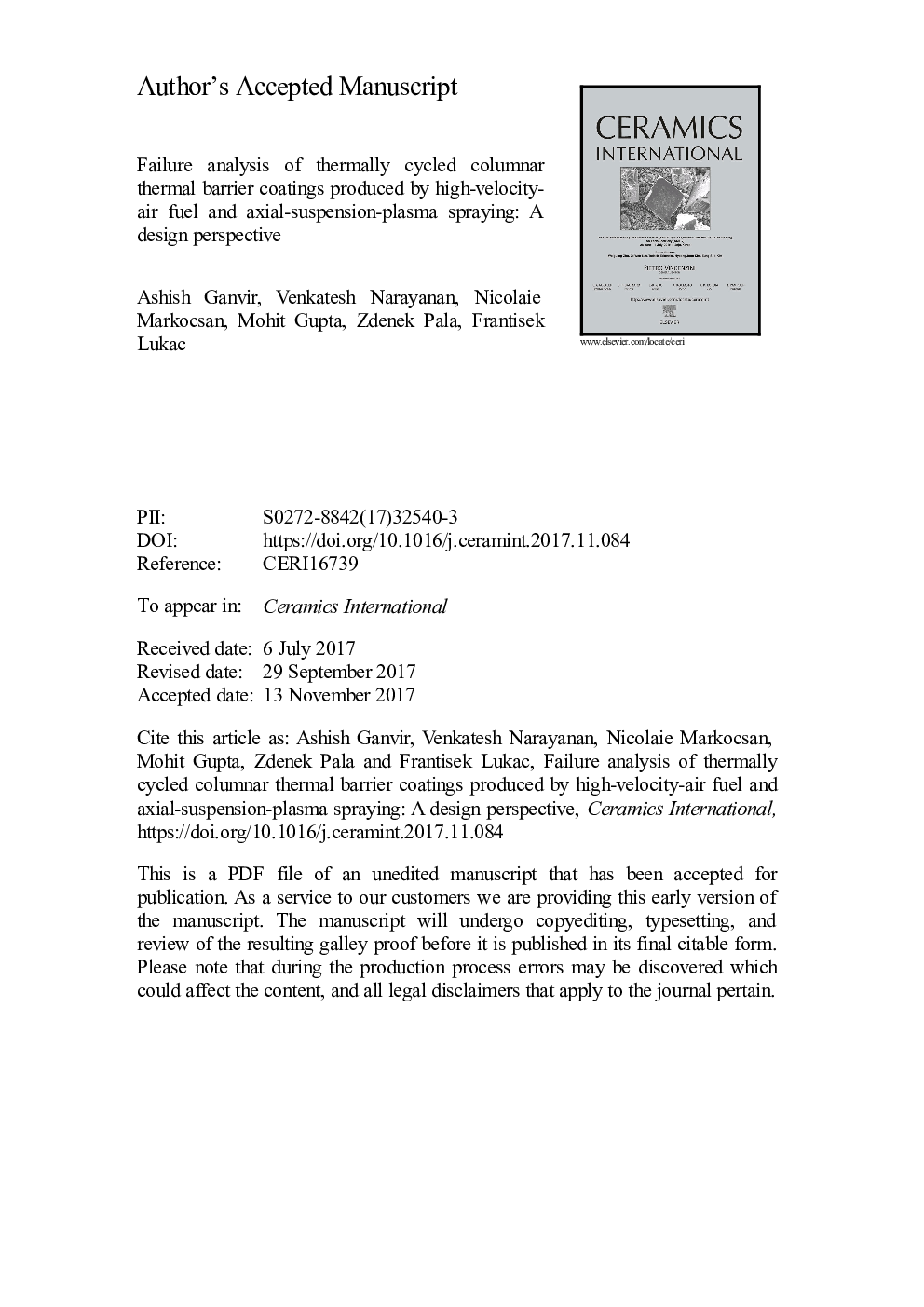| Article ID | Journal | Published Year | Pages | File Type |
|---|---|---|---|---|
| 7888882 | Ceramics International | 2018 | 26 Pages |
Abstract
Axial-suspension-plasma spraying (ASPS) is a fairly recent thermal spray technology which enables production of ceramic top coats in TBCs, incorporating simultaneously the properties of both the conventional-plasma sprayed (highly insulating porous structures) and electron-beam-physical-vapor-deposited (strain-tolerant columnar structures) top coats. TBCs are required to insulate the hot components in a gas turbine engine against high temperature and harsh operating conditions. Periodic heating and cooling of turbine engines during operation can create severe thermal cyclic fatigue conditions which can degrade the performance of these coatings eventually leading to the failure. An in-depth experimental investigation was performed to understand the failure behavior of columnar TBCs subjected to thermal cyclic fatigue (TCF) test at 1100áµC. The study revealed that the TCF performance was influenced to an extent, by the top coat microstructure, but was primarily affected by the severity of thermally grown oxide (TGO) growth at the bond coat-top coat interface. Mixed failure modes comprising crack propagation through the bond coat-TGO interface, through TGO and within the top coat were identified. Based on the analysis of the experimental results and thorough discussion a novel design of microstructure for the high TCF performance columnar TBC is proposed.
Related Topics
Physical Sciences and Engineering
Materials Science
Ceramics and Composites
Authors
Ashish Ganvir, Venkateswaran Vaidhyanathan, Nicolaie Markocsan, Mohit Gupta, Zdenek Pala, Frantisek Lukac,
